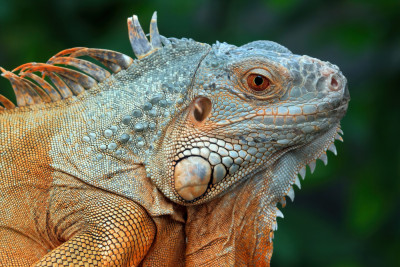What Are Exotic Pets?
Exotic pets encompass a wide array of species that are not traditionally considered domesticated. They include reptiles, amphibians, birds, mammals, arachnids, and invertebrates that hail from various regions of the world. While definitions of exotic pets can vary, they generally refer to animals that are not commonly kept as pets in a particular region or country.
The Patchwork of Exotic Pet Laws
The legal status of exotic pets varies significantly from one location to another, making it essential for prospective owners to understand the regulations in their area. Here are some key aspects of exotic pet legalities:
1. Local and State Laws:
Many exotic pet regulations are determined at the local and state levels. What is legal in one city or state may be prohibited in another. It's crucial to research and understand the specific laws in your area before acquiring an exotic pet.
2. Federal Laws:
In some countries, federal agencies may oversee the importation, sale, and ownership of certain exotic species. For example, in the United States, the U.S. Fish and Wildlife Service (USFWS) regulates the trade of species listed under the Endangered Species Act and the Lacey Act.
3. CITES Protections:
The Convention on International Trade in Endangered Species of Wild Fauna and Flora (CITES) is an international agreement aimed at ensuring that international trade in wild animals and plants does not threaten their survival. CITES lists species in three appendices, with Appendix I providing the highest level of protection. Owning or trading species listed in CITES Appendix I is generally prohibited.
4. Licensing and Permits:
Some jurisdictions require individuals to obtain permits or licenses to own exotic pets. These permits often involve strict regulations and may be subject to inspections and renewal requirements.
5. Dangerous Wild Animals Acts:
Certain regions have enacted Dangerous Wild Animals Acts or similar legislation to address the ownership of potentially dangerous exotic animals. These laws often restrict or prohibit the ownership of specific species, particularly large or potentially dangerous ones like big cats and primates.
Common Legal Restrictions
While the specifics of exotic pet laws can vary widely, several common legal restrictions and considerations frequently apply:
1. Prohibited Species:
Certain exotic species are outright prohibited in many areas due to their potential to become invasive, pose a danger to the public, or threaten native wildlife. Examples often include large carnivores, venomous snakes, and certain primates.
2. Permit Requirements:
For species that are legal to own, permits or licenses may be required. These permits typically come with specific conditions and may involve fees.
3. Zoning Restrictions:
Local zoning laws may dictate whether you can own certain exotic pets in residential areas. Some species may be restricted to commercial or rural zones.
4. Veterinary Care:
Owners of exotic pets may need to ensure that they have access to veterinarians with expertise in exotic species.
Ethical Considerations
Beyond the legal aspects, it's essential to consider the ethical implications of exotic pet ownership. The pet trade can impact wild populations and contribute to the illegal wildlife trade. Potential owners should carefully evaluate the ethics of owning an exotic pet and choose species that are bred in captivity to reduce the demand for wild-caught animals.
Conclusion
The world of exotic pet ownership is a complex one, governed by a patchwork of laws and regulations. Aspiring exotic pet owners must undertake thorough research to understand the legalities that pertain to their region and the specific species they wish to keep. Compliance with these laws is essential not only to avoid legal consequences but also to ensure the welfare of the animals involved and contribute to conservation efforts.
Before embarking on the journey of exotic pet ownership, individuals should consult local authorities, seek legal advice if necessary, and consider the ethical implications of their choices. By doing so, they can enjoy the unique companionship of exotic pets while respecting the laws that aim to protect both the animals and the broader ecosystem.







